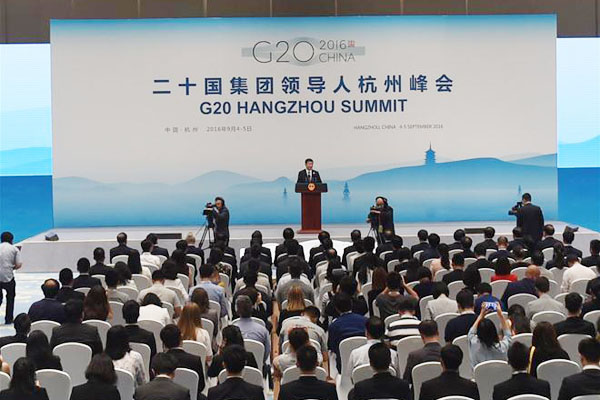 |
|
Chinese President Xi Jinping attends a press conference after the 11th summit of the Group of 20 (G20) major economies in Hangzhou, capital of east China's Zhejiang Province, Sept. 5, 2016. [Photo/Xinhua] |
China, as chair of G20, made innovation a key theme for the G20 Summit, providing a new impetus to policy actions around the world to revive the global economy and achieve strong, sustainable and balanced growth. Innovation can be a powerful driver of productivity growth, the only way sustainable long-term growth can be guaranteed. And at the Hangzhou Summit, the G20 economies vowed to implement a series of ambitious structural reforms and actions to facilitate innovation, and invest in the science and technology industry, which in itself can help revive growth in many parts of the world, especially some G20 economies.
Ambitions however go much further. To foster exchange of knowledge and experience on innovation-driven growth, the G20 economies endorsed the creation of the G20 Community of Practice within the Organization for Economic Cooperation and Development-World Bank Innovation Policy Platform. They also adopted the G20 2016 Innovation Action Plan that outlines guiding principles and actions, such as adoption of pro-innovation policies and measures.
A series of action plans was adopted in related areas, too, such as the digital economy and the New Industrial Revolution.
Innovation also features in the structural reform agenda to achieve strong, sustainable and balanced growth. The G20 economies have adopted the Hangzhou G20 Guiding Principles for Structural Reform that sets the priority areas for such reform.
The importance of innovation for China and other G20 economies can be best captured by the fact that China has chosen innovative development as one of the five key principles for the 13th Five-Year Plan (2016-20), which sets the target of becoming an innovative economy by 2020. Such a transformation presupposes the accumulation of sizeable stocks of various types of capital: physical, human, institutional and social.